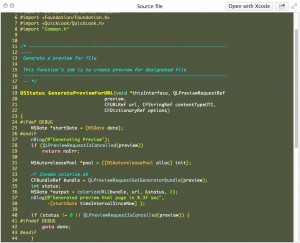I don’t watch TED talks as much as I’d like to. But I clicked on the one below given at TEDxBeaconStreet by Tyler DeWitt. Tyler is a high school science teacher and a PhD student in Microbiology at MIT. Tyler makes some great points about relaxing the formality of communicating science content in the classroom. One of the main questions is this: Is it ok to communicate something that isn’t 100% accurate (listen for his story about the “actually” guy) if the listeners are more likely to remember some of the content? I would say yes. Check out Tyler’s talk!.
